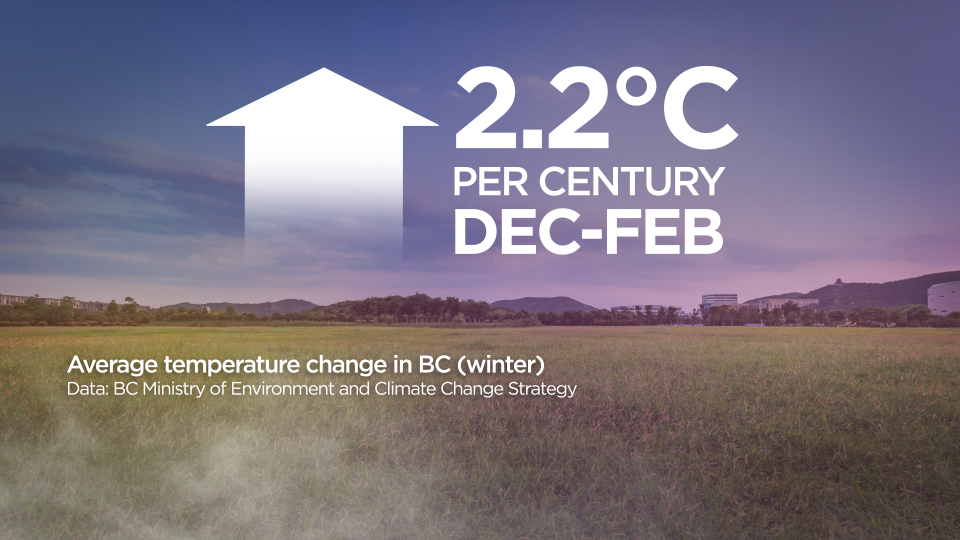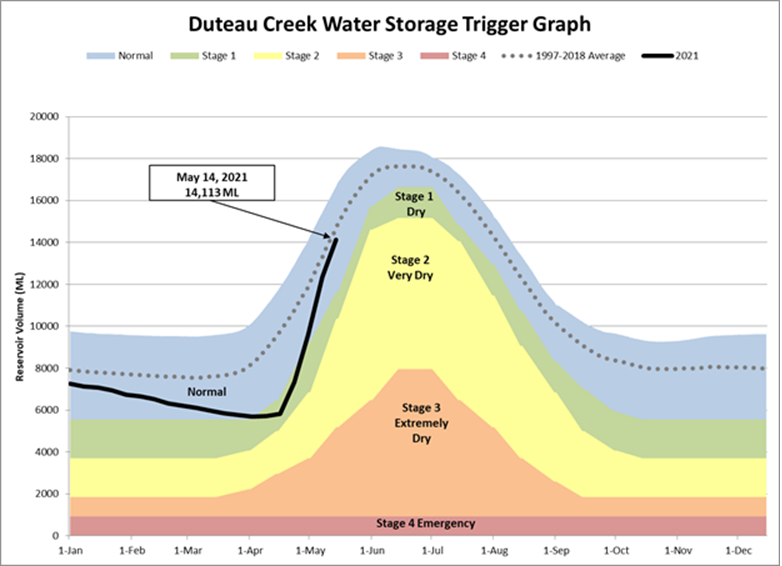As our climate changes, there is a great concern for drought and wildfires around the world in the years to come, and B.C. is no different.

In recent decades, B.C. has experienced an increase in the frequency and severity of drought and wildfires during the summer months, a trend that is expected to continue.
Here’s a look at how climate change is contributing to this, and why there is concern this year.
Science has proven our planet is warming. The average global land temperature has increased by an average of 1 C per century since 1900.
But according to the Pacific Climate Impact Consortium, our province is warming even faster, at an average rate of 1.4 C per century, above and beyond natural variability.
Most of the warming has happened during the winter months. The average increase in temperature from December through February has had a 2.2 C increase per century.
This is having a huge impact our winter snow, particularly across southern regions and lower elevations where the temperature fluctuates around the freezing mark.

Get daily National news
The Southern Interior has seen an 11-per cent decrease in snow depth each decade since 1950, with a 10 per cent drop in the Central Interior, a seven per cent drop in the Southern Interior Mountains, and a six per cent drop surrounding the Strait of Georgia on the South Coast.
This results in less snow each year in valley communities — something being noted in cities across North America.
Temperature change, however, is not the only variable affecting snow depth.
Other climate change impacts, such as changes in precipitation, storm frequency and wind also play a role. However, the temperature is the easiest to correlate at this time.
As the average trend of less snow in the mountains and spring-like conditions arriving sooner continues, experts from the BC River Forecast Centre have noticed the mountain snowpack is on average melting earlier in the season.
Snow is crucial for the summer months because it acts as temporary storage by filling our reservoirs and rivers and replenishing soil moisture and groundwater aquifers.
Water utility companies in the Interior are already concerned about drought this year.
The region has seen below-average precipitation over the last few months, and as of May 15, the snowpack had begun melting slightly earlier than normal.
Depending on how much rainfall B.C. gets in June, the province could be in for another very dry summer.
The B.C. Wildfire Service is also quite concerned, not only for this season but for the years to come.
“From a wildfire perspective, we’re seeing climate change affect us in two different ways. It’s generating more severe weather events, long-term heat waves, longer termed drought, and a longer fire season,” wildfire prevention specialist Dana Hicks said.
But we’re also seeing a change in the fuels across British Columbia. Insects and diseases are able to overwinter successfully, and that’s affecting the fuel.”
Research outlined in an article by Climate Atlas of Canada, also shows that drought increases the amount of dry fuel available to burn and fire weather researchers say “the future is smoky.”
Lastly, if you’re wondering if less snow and earlier snowmelt will result in less flood risk in the years to come, the answer is no.
“If there’s less snow available … there tends to be less risk from the snowmelt, but that’s been offset a little bit in some areas by more volatility in the extreme weather patterns that are happening,” said Dave Campbell from the BC River Forecast Centre.
“So we’re potentially getting more rain, we’re seeing more severe storms and we’re seeing that that often plays probably the bigger role in terms of whether we see flooding or not.”













Comments